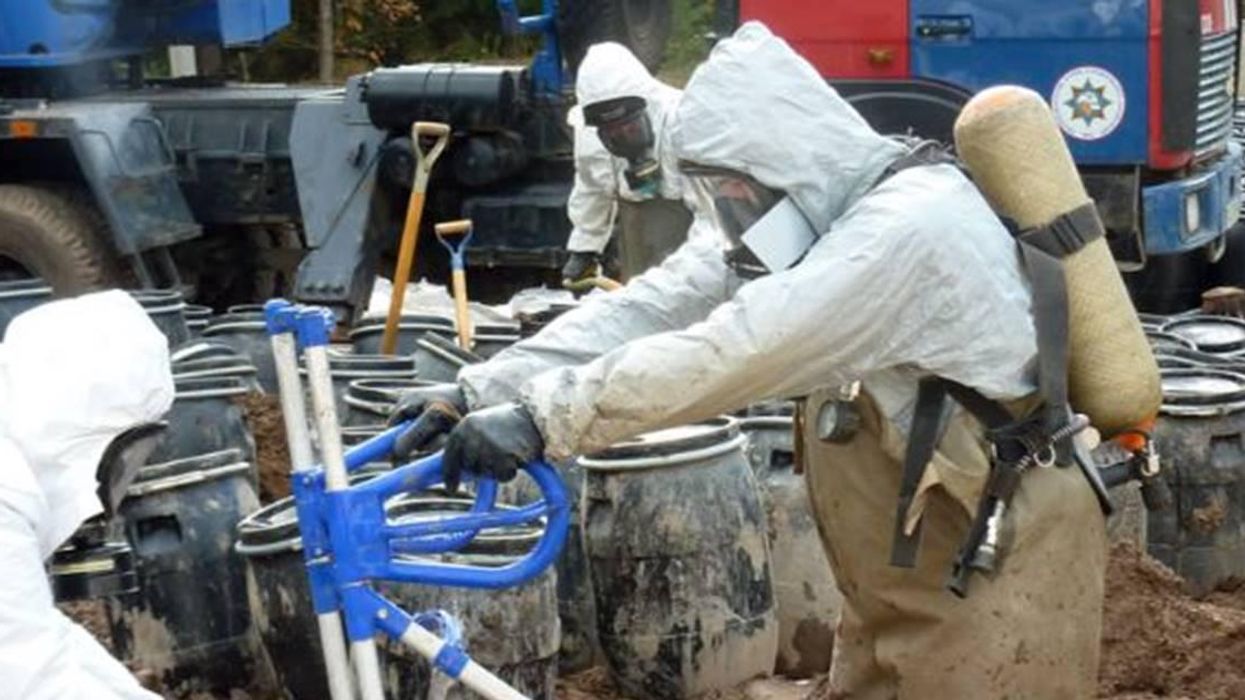
A shocking report released last month by Pesticide Action Network (PAN) Europe found that over the past nine years there has been a 53% rise in contamination of the most hazardous pesticides in European fresh fruits.
The analysis of more than 97,000 fruit samples found that nearly one-half of all blackberries and one-third of apples had toxic pesticide residue. These pesticides have been linked to serious illnesses such as birth defects, cancer and heart disease.
At the same time, Reuters reports that intensive “farming, forestry and urbanisation are fuelling the degradation of natural habitats” adding that most of Europe’s protected “species have a negative conservation status.”
In an effort to dramatically reduce the volume of pesticides in the bloc’s food supply and rehabilitate its natural habitat, the European Commission has proposed dramatic new environmental targets. The first would reduce the use of chemical pesticides across the EU 50% by 2030. Pesticides would also be banned for use in public parks and protected areas.
u201cAccording to new research by our partners at PAN Europe, the contamination of fruits and vegetables produced in the European Union by the most toxic pesticides has substantially increased over the past decade. https://t.co/y6SIIkdQ7Yu201d— PAN North America (@PAN North America)
1655920740
The second would require EU countries to restore 20% of the bloc’s land to nature by 2030 and all degraded land by 2050.
In addition, the proposal would restore 15,500 miles of rivers and redirect them to their natural courses. It would also work to increase farmland bird populations.
“The aim is to cover at least 20% of the EU’s land and sea areas by 2030 with nature restoration measures, and eventually extend these to all ecosystems in need of restoration by 2050,” the commission said, according to The Washington Post.
Frans Timmermans, the commission’s first vice president, will help the EU recover its natural habitat at a time when the planet is threatened by climate change.

“When we restore nature, we allow it to continue providing clean air, water, and food, and we enable it to shield us from the worst of the climate crisis,” Timmermans said according to The Washington Post. “Reducing pesticide use likewise helps nature recover, and protects the humans who work with these chemicals.”
The new proposal would be wonderful for the planet but the fast transition to pesticide alternatives would be a challenge to EU farmers. So the proposal allows farmers to use EU funds to cover the new costs for the first five years.
The proposal will have to be approved by EU member countries and lawmakers to take effect. Some are skeptical of making such drastic changes at a time when the bloc’s food supply has been compromised by Russia’s invasion of Ukraine.
However, the European Commission believes if there isn’t a switch to new farming techniques, the effect on the bloc could be disastrous as well.
“If we lose soil fertility, if soil erosion and degradation continue, that is going to be a major impact on our agricultural output,” the European Commission’s Commissioner for Environment, Oceans and Fisheries Virginijus Sinkevičius told Reuters.
The European Commission’s proposal is a dramatic plan that could fundamentally change the face of Europe by reversing decades of damage caused by farming and urban sprawl. At a time when Europe is being challenged by war and the effects of climate change, returning the land to nature has never seemed like a better idea.
